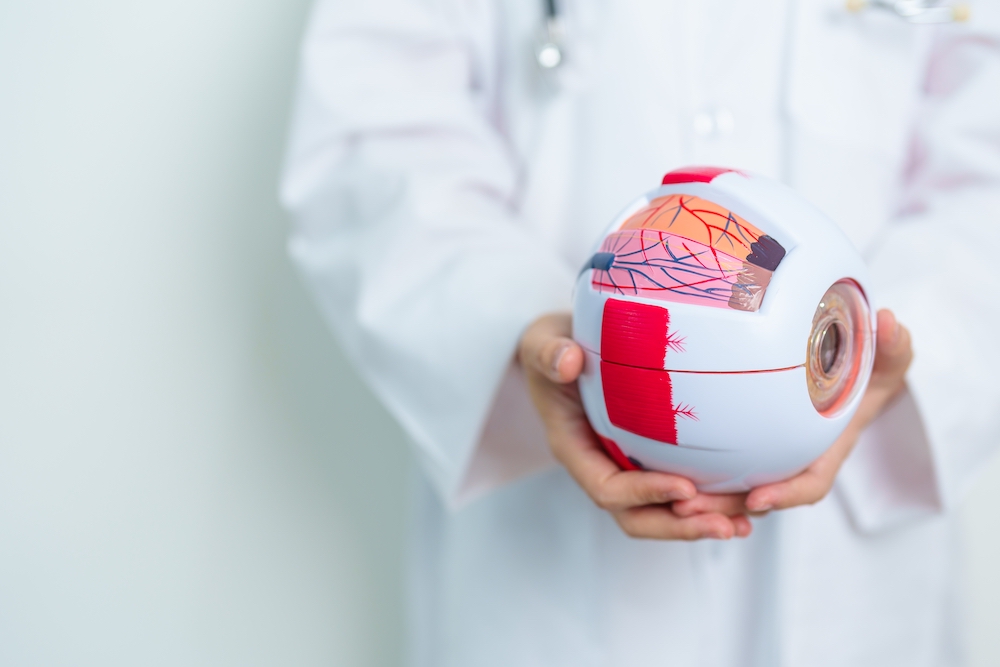
Our eyes are complex organs that require proper care and attention to function optimally. Despite their importance, many of us often neglect our eye health until we experience problems. This is unfortunate, as most common eye diseases and their symptoms can be detected early and treated effectively if we pay close attention and schedule regular eye exams.
Understanding the Most Common Eye Diseases
Eye diseases are many and varied, but some are more common than others. These include conditions such as cataracts, glaucoma, age-related macular degeneration (AMD), and diabetic retinopathy, among others. Each of these diseases presents differently, has unique causes, and requires specific treatment approaches.
Cataracts, for instance, are characterized by clouding of the eye's lens, leading to impaired vision. They are primarily associated with aging but can also result from injury or certain health conditions.
Glaucoma, on the other hand, is a group of conditions that damage the optic nerve, often due to high pressure within the eye, and is one of the leading causes of blindness for people over 60.
Similarly, AMD is a condition that blurs or reduces vision in the center of the visual field, typically affecting older adults.
Diabetic retinopathy is a diabetes complication that affects the eyes, damaging the blood vessels of the light-sensitive tissue at the back of the eye.
Insight into Most Common Eye Diseases and their Signs
Each of these common eye diseases manifests with specific signs and symptoms, making it possible to detect them early if you know what to look for.
Cataracts typically start small and initially have little effect on your vision. You might notice that your sight is slightly blurred, like looking through a cloudy piece of glass. As cataracts grow larger, they cloud more of the lens and distort the light passing through the lens, causing symptoms like blurred or dim vision, increased sensitivity to light and glare, and seeing "halos" around lights.
Glaucoma often has no symptoms in its early stages. However, as the disease progresses, you might experience patchy blind spots in your peripheral or central vision, often in both eyes, and tunnel vision in the advanced stages.
AMD usually produces a slow or sudden change in the quality of your vision, including a reduction in central vision, distorted vision, or shadowy areas in your central vision.
Diabetic retinopathy can have no early symptoms or only mild vision problems at first, but over time, it can cause blurred or fluctuating vision, impaired color perception, dark or empty areas in your vision, and vision loss.
Detecting Eye Diseases Early
Despite the clear signs and symptoms associated with most common eye diseases, many people often overlook these early warning signs or dismiss them as mere inconveniences. This is where the importance of regular eye exams comes into play.
A comprehensive eye exam involves a series of tests designed to evaluate your vision and check for eye diseases. These exams are performed by eye care professionals and include procedures like visual acuity tests, eye movement tests, and tests that check for glaucoma, macular degeneration, and other eye diseases.
Regular eye exams are crucial for early detection of eye conditions. This is because some eye diseases do not exhibit symptoms until they have progressed significantly. By the time symptoms become noticeable, irreversible damage may have already occurred. Regular eye exams allow for early detection and treatment, thereby preventing further progression and potential vision loss.
Preventive Measures for Common Eye Diseases
While regular eye exams are critical for early detection and treatment of eye diseases, there are also several preventive measures you can take to maintain your eye health and possibly prevent these diseases.
Living a healthy lifestyle is a crucial preventive measure. This includes eating a balanced diet rich in fruits and vegetables, particularly those high in vitamins A, C, and E, and omega-3 fatty acids. Regular exercise is also beneficial as it improves overall health and helps prevent conditions like diabetes and high blood pressure that can lead to eye problems.
Protecting your eyes from harmful UV rays is also crucial. Always wear sunglasses with 100% UVA and UVB protection when outdoors. If you work on a computer or spend long hours on digital devices, take regular breaks to rest your eyes and minimize eye strain.
Safeguard Your Eye Health Today
Many eye diseases can cause irreversible damage if left untreated, but with early detection and the right treatment, it's possible to slow or stop the progression of these diseases. Start taking preventive measures today, and make sure to schedule regular eye exams.
If you are experiencing any warning signs of an eye disease, schedule an eye exam with our optometrist at DaVinci Eye Care in our Warminster, Pennsylvania office. We provide friendly, approachable and knowledgeable eye services for all your eye care needs. Call (215) 443-8580 to schedule an appointment today.







